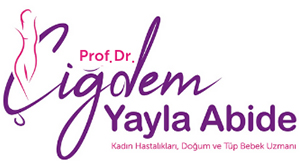Can Breastfeeding Mothers Fast?
Does Fasting of a Breastfeeding Mother Harm Her Baby?
For the health of mother and baby, the healthy eating habits during pregnancy should be continued while breastfeeding. Breastfeeding mother should not diet and should not eat twice as much. She should eat healthy and consume plenty of fluids. When breastfeeding, it will be sufficient to take an additional 300-500 calories from the normal calorie requirement. In addition, you can continue multivitamin supplements.
You should not smoke, eat your daily fresh vegetables and fruit, and meet your protein needs. Only breast milk is recommended for the first 6 months. And the mother should consume plenty of water and eat a balanced diet while breastfeeding. If fluid consumption decreases as in fasting, the amount of milk may decrease and its content may change. Many studies have shown that not short-term but long-term hunger and thirst cause changes in breast milk content.
Who is definitely not recommended to fast in breastfeeding mothers?
- In the first 6 months after birth and if you are breastfeeding,
- If you have a chronic disease
- If you live in hot regions and lose a lot of fluid
- You are not getting enough nutrition,
- If your milk is already low
- If you have a premature baby or a baby with feeding problems,
- If you have had a multiple pregnancy (twin or triplet pregnancy), I do not recommend fasting.
Therefore, I can only recommend fasting in accordance with your doctor's advice.
So when should I stop fasting?
- If the baby has restlessness, frequent sucking request
- If there is a decrease in the baby's weight gain,
- In case of under-wetting of the baby's nappy, pinkish staining in the nappy, sleep problems
- If you feel excessive thirst,
- If you feel weakness, headache, fatigue,
- If your urine is dark in colour,
- If you start to feel severe dryness on your skin, mouth and lips, I strongly recommend you to stop fasting.
What Should Mothers Who Fast While Breastfeeding Pay Attention To?
- Mothers who fast after the first 6 months of breastfeeding should eat a balanced diet between iftar and sahur, avoid fried, salty and sugary foods, and consume plenty of fluids.
- They should consume seasonal vegetables and fruits.
- They should meet their increased energy needs from natural sources (such as fruit and whole grain bread). In case of problems such as weakness, darkening of the eyes, low blood pressure, fasting should be terminated and plenty of fluids should be taken.
Fasting during Pregnancy
- Can pregnant women fast during Ramadan?
- Can fasting be done during pregnancy? Can pregnant women fast?
- Will fasting harm the baby in my womb?
- Can I work while fasting?
- How should I eat while fasting during Ramadan?
- What should I know about fasting during pregnancy?
Unfortunately, the answer to many questions about pregnancy and fasting is still not clear.
What is certain is;
It is very important to eat a balanced diet and consume plenty of fluids during pregnancy. Prolonged fasting and dehydration can lower your blood pressure, dehydration can reduce your urine output and prepare the ground for urinary tract infections, decrease in baby movements, low blood sugar, weakness, fatigue, weight loss and psychological problems.
We scientists should act according to good quality studies and make recommendations to our patients. Of course, our experience is also very important. We think that we have given birth to a healthy baby, everything is fine, but we do not know whether it affects the school success, healthy weight gain, physical activity, etc. of our growing baby in the following years... Unfortunately, it is not correct to make comments by looking at one or two studies.
The studies called meta-analysis, in which many studies are collected and analysed and the data of the quality ones are combined, are the most valuable for us. I would like to mention a meta-analysis (1) published in BMJ 2018 regarding pregnancy and fasting; This meta-analysis examined 375 records, 22 studies involving 31,374 pregnant women were examined. Among these pregnant women, 18,920 pregnant women were fasting.
As a result of this meta-analysis, we can say that; It is not correct for clinicians or healthcare professionals caring for pregnant women to make a definite comment that Ramadan fasting does not cause adverse consequences for pregnant women and their babies. Further studies are needed for this.
We will only be able to give you more precise recommendations as a result of more detailed and high quality large-scale research on which pregnancy period is fasted, the weather, how long it is kept, the effect of fasting on pregnancy during the period of pregnancy formation, the eating pattern of the fasting pregnant woman, etc..
Individual studies say: Fasting, especially in the first trimester, is associated with a reduced birth weight (2). In 2nd and 3rd trimester fasting pregnant women, placental weight was found to be lower (3). In some studies, it was observed that there were no problems in the mother and baby; such as preeclampsia and preterm birth. One study even mentions that second trimester fasting reduces gestational diabetes.
So What Are My Suggestions About Pregnancy and Fasting?
First of all, of course, every pregnancy process is different. In a risky pregnancy process, I never recommend fasting in the presence of health problems such as ‘gestational diabetes, hypertension, pre-eclampsia (a disease with high blood pressure during pregnancy), pregnant women whose pre-pregnancy weight is below normal, those at risk of premature birth or pregnant women at risk of giving birth to a low birth weight baby’.
Therefore, I recommend that you should first be evaluated by your doctor and act in accordance with your doctor's advice. Of course, since we do not have enough data, although I do not recommend my pregnant women to fast, I leave this decision to them, which is what our religion has done.
So who are my pregnant women to whom I leave the decision to fast?
- Those with good general health before and during pregnancy, but after the 14th week of pregnancy
- Those who want to fast during the seasonal period other than the summer months when the days are longer
- Pregnant women who can get enough fluids and calories between iftar and sahur and who will eat a healthy diet.
- I leave the decision to pregnant women who do not work in a heavy job, do not tire themselves and receive support from their family.
What are my recommendations for pregnant women who will fast;
- You should consume plenty of fluids between iftar and sahur (it is recommended to consume 2.5-3 litres of fluid on an average day),
- Why water is important: In pregnant women, the amount of blood increases and the amount of water needed also increases. If a pregnant woman consumes less water, her blood becomes thicker, her blood pressure drops and her heart may palpitate. Breathing becomes difficult. The amount of urine decreases, oedema develops and body temperature increases. The water in the baby also decreases. In addition to headache and weakness, contractions in the uterus may start and the risk of premature birth may enter. Cramps may start in pregnant women due to magnesium deficiency. Dry skin and cracks may occur.
- Changes in your eating habits and not consuming enough fluid can cause constipation. Therefore, I recommend you to consume high-fibre foods at iftar; vegetables, fruits, whole grains, ... etc.
- Do not eat too much sugary foods. Foods containing natural sugar are healthier, such as fruit.
- You should avoid fatty and fried foods.
- Do not consume too much caffeine. Maximum 200mg caffeine is recommended during pregnancy. This is equivalent to 2 cups.
- Fasting can sometimes cause indigestion problems, especially if you go to bed immediately after eating at sahur. I recommend that you consume foods low in fat and salt in small and frequent meals.
- It is important to start eating slowly at iftar, for example, you can start with soup. You should get enough protein and calories.
- You should eat often and little by little between iftar and sahur.
- You may need vitamin and mineral supplements.
- You should not work intensively, you should spend this period by resting more.
- You should not lift heavy and take long walks. You should stay away from all work that will tire you.
- You should check up with your doctor more often.
When should you stop fasting?
- If you are not gaining enough weight or losing weight, it can be dangerous for your baby.
- If you are very thirsty or your urine becomes darker; it means that you are dehydrated, which can lead to a urinary tract infection and other problems.
- You feel weak, weak, tired, especially after resting.
I recommend that you stop fasting immediately and eat sugary, salty snacks and a balanced diet.







